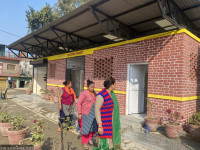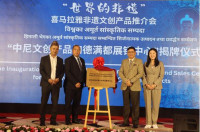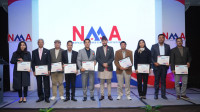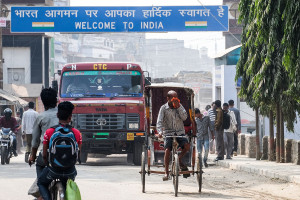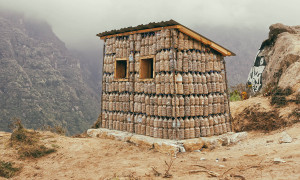Money
Challenges abound as FNCCI holds 50th AGM
Hard hit by the twin shocks of earthquake and India’s blockade, the Nepali private sector is going through one of its worst periods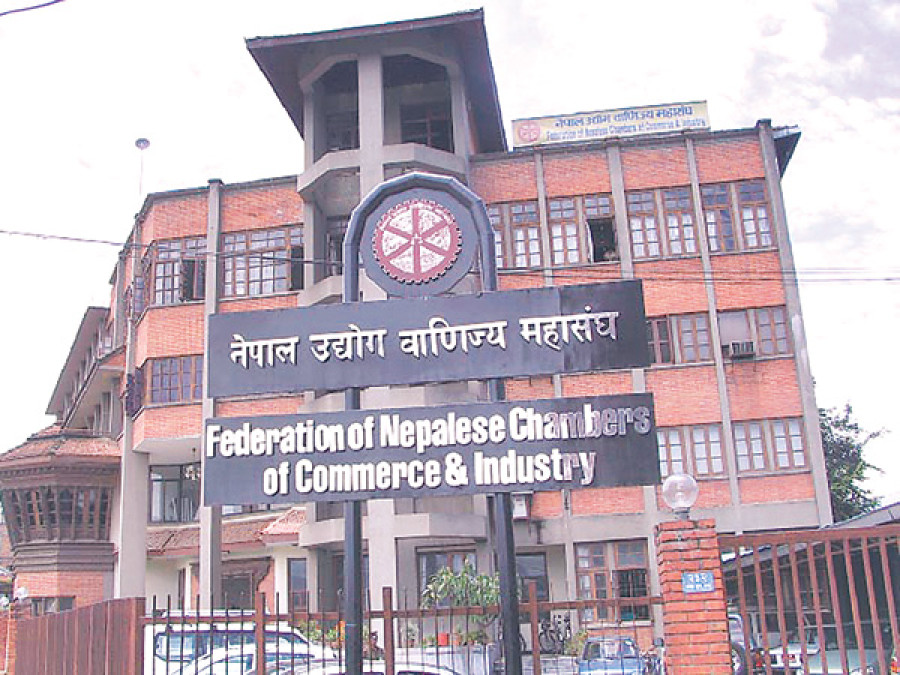
As FNCCI holds its 50th Annual General Meeting (AGM), it faces multiple challenges to take forward the Nepali private sector, especially after the April 25 earthquake and India’s trade blockade.
Hard hit by these twin shocks, the Nepali private sector is going through one of its worst periods. The private sector’s confidence has hit rock bottom as businesses struggle to get back on their feet.
For almost four months, industrial activities stalled due to Tarai unrest and Indian embargo. However, despite the lifting of blockade, petroleum crisis is still far from over, with factories finding it hard to get diesel to run their power generators amid extended power outages.
With country still in a political transition, FNCCI has a tough task ahead to put economic issues on the priority list of the political class. The 50th AGM, in that sense, will be crucial as it decides how FNCCI will articulate these crises and force the political parties and the government to act.
“After the promulgation of the new Constitution, the political situation has worsened instead of improving,” said former FNCCI President Suraj Vaidya. “The decision on federalism was made by putting political interests ahead instead of thinking about the country’s future, without considering whether the provinces are viable economically.”
Established in 1965 with an aim of promoting the country’s economic and social development while protecting and defending the rights and interests of businesspeople, FNCCI now has a nationwide network.
FNCCI officials claim its network is the second largest in the country after the government’s. “In terms of network and reach, there has been a big achievement,” said Vaidya.
FNCCI is also a body widely consulted with by policymakers while formulating new policies and laws. It has sartorial committees that provide important suggestions to the government. “It has emerged as a parallel government in a sense,” said another former President Rabi Bhakta Shrestha, who credits past FNCCI leadership for establishing it as one of the premier institutions in the country.
Over the period, FNCCI also faced split, with its former president Binod Chaudhary and his team forming the Confederation of Nepalese Industries (CNI) in 2002.
In prelude to the creation of CNI, there had been a bitter dispute between two camps — one led by Chaudhary who wanted a re-election and another led by Padma Jyoti who contested for the presidency.
“Unfortunately, there were divisions along communal lines,” remembers Shrestha, who was FNCCI’s president when CNI was created. “Whenever there has been an election for the FNCCI leadership instead of consensus, the federation has gone through deep divisions,” said Shrestha.
However, Vaidya believes the creation of CNI has made FNCCI better as it has to compete to retain businesses under its umbrella.
Factionalism once again raised its ugly head recently, with one group not recognising the validity of former president Pradeep Jung Pandey. After Pandey was jailed over a 32-year-old case of non-served jail term in a corruption case, FNCCI elected Pashupati Murarka, who was then first vice-president, as new president through consensus.
The case was raised just before the FNCCI election. It didn’t prevent Pandey from being elected, but it lead to his imprisonment.
Business persons have also complained about different political parties seeking to influence particular candidates during FNCCI elections. Vaidya warned that if the FNCCI leadership is elected under the influence of certain political parties, it may lead to the institution’s disintegration.
Going ahead, he stressed on the need for changing the FNCCI statute to minimise the influence of political parties and former presidents, arguing the new leadership should be allowed to work freely.
With the risks of political turmoil still existing due to unresolved issue of province boundary, both Shrestha and Vaidya blamed the political leadership for only looking at present instead of planning for brighter future.




 15.12°C Kathmandu
15.12°C Kathmandu

